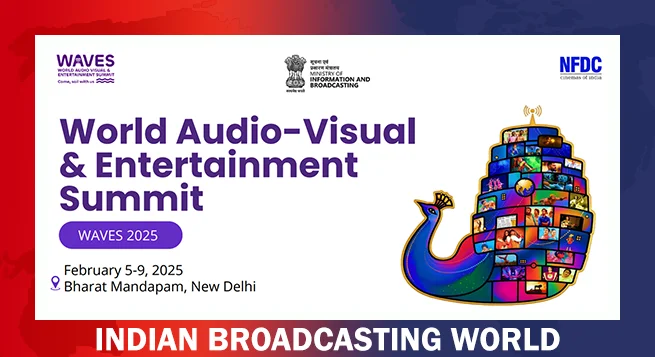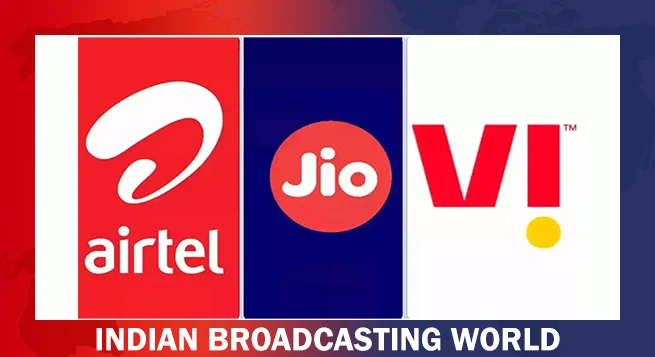Even as the digital media spreads its wings in India, a report by advertising watchdog ASCI has revealed a disturbing trend: 75 percent of violative ads have been spotted on digital media, raising concerns about the online safety of consumers.
The Advertising Standards Council of India (ASCI) annual complaints report 2022–23, interestingly, also revealed that celebs continue to mislead consumers. “97 percent of celebrity ads scrutinised failed to provide evidence of due diligence mandated by the Consumer Protection Act,” it observed.
Some of the other highlights include the following:
# 7928 ads scrutinised by ASCI, 2x increase over 2 years, 88 percent taken up suo-motu.
# Gaming pips education to be the largest violator (15 percent), also least compliant (46 percent).
# Healthcare, personal care, crypto are other key violative sectors.
# There was an 803 percent increase in ads processed against celebrities (503 ads).
# One in every 4 ads processed by ASCI had an influencer violation.

During the period, ASCI, which reviewed 7,928 advertisements across different media, including print, digital and television, said it has stepped up its scrutiny of ads nearly two-folds over the last couple of years.
The report, released yesterday, highlighted TV and print advertisers continuing to be highly compliant at 94 percent. However, the overall compliance is lower at 81 percent due to digital. Hence, digital ads emerged not just as a leading violator, with 75 percent of ads processed being from the digital space, but also as the least compliant.
According to the EY and FICCI 2023 report on India’s media and entertainment sector, advertising outperformed the Indian GDP growth. At INR 1,049 billion, advertising exceeded the INR 1 trillion benchmark for the first time.
In 2022, when India’s nominal GDP grew 15 percent, advertising recovered 19 percent. It is now 0.4 percent of India’s GDP, much lower than developed large markets like the US, Japan, and China, which are all between 0.6- 1 percent. Digital advertising grew 30 percent to reach INR 499 billion, or 48 percent of total advertising revenues in comparison to print and TV advertising, which grew by 13 percent and 2 percent, respectively.

As per the report, according to a media statement put out by ASCI, the real-money gaming industry surpassed the education sector to emerge as the most violative sector, moving from fifth to first place.
An astounding number (92 percent) of gaming advertisements reviewed by ASCI for FY 2022–23 did not adhere to the guidelines for real money gaming and failed to inform consumers about the risks of financial loss and addiction.
The sector also gained the dubious distinction of being the least complaint, with only 50 percent of ads being modified voluntarily after they have been called out. It may be remembered that ASCI had released its guidelines for the Real-Money gaming sector in December 2020, and the Ministry of Information and Broadcasting had thereafter released an advisory asking all parties to comply with the guidelines.
The report also revealed a sharp increase in the number of misleading ads featuring celebrities.

ASCI processed 503 such ads, as opposed to 55 the previous year, a growth of 803 percent. In 97 percent of these ads, the celebrities failed to provide evidence of due diligence as mandated by the Consumer Protection Act. This again is a serious issue as ads featuring celebrities have a high impact on consumers, the watchdog observed.
In addition, influencer violations stood at 26 percent, with 2,039 complaints being processed against them. Categories, including personal care, food and beverage and fashion and lifestyle, topped the list of influencer-related violations.
ASCI’s adoption of artificial-intelligence-based tracking has bolstered its ability to scrutinise digital media effectively, despite challenges such as the pace of advertising and the sheer number of ads to be processed. This goes to show that the self-regulatory organisation remains steadfast in its commitment to promote responsible advertising practices and protect consumer rights.
The ASCI Annual Complaints Report serves as a wake-up call to advertisers, platforms, and regulators, urging them to join forces and create a secure environment and foster trust among consumers.
NS Rajan, Chairman, ASCI, observed: “The digital advertising landscape is truly challenging us all and ASCI is no exception. Stepping up our surveillance through AI based tools and a robust complaint management system has ensured that ASCI is keeping pace with this dynamic environment. Updating our codes to reflect newer consumer concerns makes sure the ASCI codes remain contemporary. We will continue to act as the conscience keeper of the Indian ad industry with transparency and future-facing expertise.”
Manisha Kapoor, ASCI CEO and Secretary General, added: “The complaints analysis for 2022–23 clearly shows that the digital medium is leading in terms of violative ads. This raises significant concerns around online consumer safety and trust.
“Advertisers, content creators and platforms must come together to address this issue on an urgent basis to protect consumer interests. In addition, the sharp increase in the number of violative gaming ads needs serious attention from the industry.”
Real Money Gaming, according to the report, also was the most non-compliant sector for the year 2022-23. Over 50 percent of the ads that required modification have not complied with the Consumer Complaints Council recommendations and have been forwarded to relevant regulatory authorities for further action in accordance with the laws for consumer protection.
 PM Modi compares WAVES to Davos’ WEF in year’s last ‘Mann Ki Baat’
PM Modi compares WAVES to Davos’ WEF in year’s last ‘Mann Ki Baat’  TRAI revamps website to connect with wider audience
TRAI revamps website to connect with wider audience  Sci-fi thriller ‘Baida’ set for 2025 release
Sci-fi thriller ‘Baida’ set for 2025 release  Film fraternity lauds PM Modi vision for WAVES 2025
Film fraternity lauds PM Modi vision for WAVES 2025  Shemaroo wades into metaverse, blockchain expansion
Shemaroo wades into metaverse, blockchain expansion  VI gets Rs 24,800cr relief with bank guarantee waiver for spectrum auctions
VI gets Rs 24,800cr relief with bank guarantee waiver for spectrum auctions  Shobit Arora joins Network18 as National Head of Connected TV
Shobit Arora joins Network18 as National Head of Connected TV 








